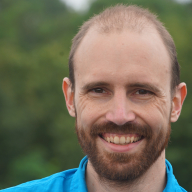
ChristianKleineidam
Posts 10
Comments141
When speaking about "merit" of judges, the useful for what that means in practice.
For low-level judges, that often means exam scores. In merit-based systems, you need good exam scores to become a judge.
For experienced judges you can measure merit by how much of their judgements get overturned by higher courts. A judge who constantly makes judgements that get overturned is bad at seeking legal consensus.
In common law jurisdiction you could also measure how often the opinion of the judge on cases get cited by opinions from other courts.
When choosing justices on the one hand you want to choose them meritocratically and on the other hand, you want that the views of the population are well represented.
For justices in lower courts who are just supposed to rule in the way the higher courts would, you can just pick them meritocratically without problems if the higher courts are selected in a way that represents the view of the population.
Debating societies - for instance an initiative to debunk conspiracies.
When it comes to debunking conspiracy theories, the right way to do it is by looking at the evidence.
Debating societies are inherently about making clever arguments without looking at the evidence. That's not helpful for getting people to deal better with conspiracy theories.
It seems that a major problem of a competitor to CEA Community Health is that it's harder for someone outside of the US to have the connection to get the necessary information.
The Wikileaks strategy against defamation suits was to have the spokesperson of the organization be a digital nomad, so there's no address to which you can easily serve papers for lawsuits.
Otherwise, maybe Scandinavian countries or some Eastern European ones could have a good combination of low legal costs of lawsuits and strong free speech laws.
Maybe you can do all the money movement for the org in crypto and have no clear country to which the org belongs.
Though I have less faith in Ben than before after seeing him publish without waiting a week
It seems to me like by publishing it when he did, he acted according to Alice and Chloe's interested who were protected by an earlier publication at a cost to other parties.
If I were in the position of someone like Alice or Chloe and think about whether or not to talk to Ben, that would make me more likely to talk to Ben not less.

At the NIH, Jay Bhattacharya did a lot to reduce animal experimentation and thus reduce animal suffering. As far as ChatGPT can tell, this seems to be completely ignored by the Effective Altruism forum.
Marty Makary's FDA is also taking it's steps to reduce the need of animal testing for FDA approvals.
Is this simply, because Effective Altruists don't like the Trump administration so they can't take the win of MAHA bringing contrarians into control of health policy that do things like caring more about reducing animal suffering and fighting the replication crisis?